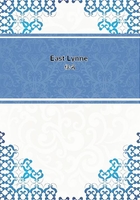
第64章
"Sir, I cannot say. I never saw that Captain Thorn but once, and I don't know, I don't know--" Joyce spoke slowly and with consideration --"that I should at all know him again. I did not think of him when I looked at this gentleman; but, at any rate, no appearance in this one struck upon my memory as being familiar."
So from Joyce Mr. Carlyle obtained no clue, one way or the other. The following day he sought out Otway Bethel.
"Are you intimate with that Captain Thorn who is staying with the Herberts?" asked he.
"Yes," answered Bethel, decisively, "if passing a couple of hours in his company can constitute intimacy. That's all I have seen of Thorn."
"Are you sure," pursued Mr. Carlyle.
"Sure!" returned Bethel; "why, what are you driving at now? I called in at Herbert's the night before last, and Tom asked me to stay the evening. Thorn had just come. A jolly bout we had; cigars and cold punch."
"Bethel," said Mr. Carlyle, dashing to the point, "is it the Thorn who used to go after Afy Hallijohn? Come, you can tell if you like."
Bethel remained dumb for a moment, apparently with amazement. "What a confounded lie!" uttered he at length. "Why it's no more that than--What Thorn?" he broke off abruptly.
"You are equivocating, Bethel. The Thorn who is mixed up--or said to be--in the Hallijohn affair. Is this the same man?"
"You are a fool, Carlyle, which is what I never took you to be yet," was Mr. Bethel's rejoinder, spoken in a savage tone. "I have told you that I never knew there was any Thorn mixed up with Afy, and I should like to know why my word is not to be believed? I never saw Thorn in my life till I saw him the other night at the Herberts', and that I would take my oath to, if put to it."
Bethel quitted Mr. Carlyle with the last word, and the latter gazed after him, revolving points in his brain. The mention of Thorn's name, the one spoken of by Richard Hare, appeared to excite some feeling in Bethel's mind, arousing it to irritation. Mr. Carlyle remembered that it had done so previously and now it had done so again, and yet Bethel was an easy-natured man in general, far better tempered than principled. That there was something hidden, some mystery connected with the affair, Mr. Carlyle felt sure; but he could not attempt so much as a guess at what it might be. And this interview with Bethel brought him no nearer the point he wished to find out--whether this Thorn was the same man. In walking back to his office he met Mr. Tom Herbert.
"Does Captain Thorn purpose making a long stay with you?" he stopped him to inquire.
"He's gone; I have just seen him off by the train," was the reply of Tom Herbert. "It seemed rather slow with him without Jack, so he docked his visit, and says he'll pay us one when Jack's to the fore."
As Mr. Carlyle went home to dinner that evening, he entered the grove, ostensibly to make a short call on Mrs. Hare. Barbara, on the tenterhooks of impatience, accompanied him outside when he departed, and walked down the path.
"What have you learnt?" she eagerly asked.
"Nothing satisfactory," was the reply of Mr. Carlyle. "And the man has left again."
"Left?" uttered Barbara.
Mr. Carlyle explained. He told her how they had come to his house the previous evening after Barbara's departure, and his encounter with Tom Herbert that day; he mentioned, also, his interview with Bethel.
"Can he have gone on purpose, fearing consequences?" wondered Barbara.
"Scarcely; or why should he have come?"
"You did not suffer any word to escape you last night causing him to suspect for a moment that he was hounded?"
"Not any. You would make a bad lawyer, Barbara."
"Who or what is he?"
"An officer in her majesty's service, in John Herbert's regiment. I ascertained no more. Tom said he was of good family. But I cannot help suspecting it is the same man."
"Can nothing more be done?"
"Nothing in the present stage of the affair," continued Mr. Carlyle, as he passed through the gate to continue his way. "We can only wait on again with what patience we may, hoping that time will bring about its own elucidation."
Barbara pressed her forehead down on the cold iron of the gate as his footsteps died away. "Aye, to wait on," she murmured, "to wait on in dreary pain; to wait on, perhaps, for years, perhaps forever! And poor Richard--wearing out his days in poverty and exile!"